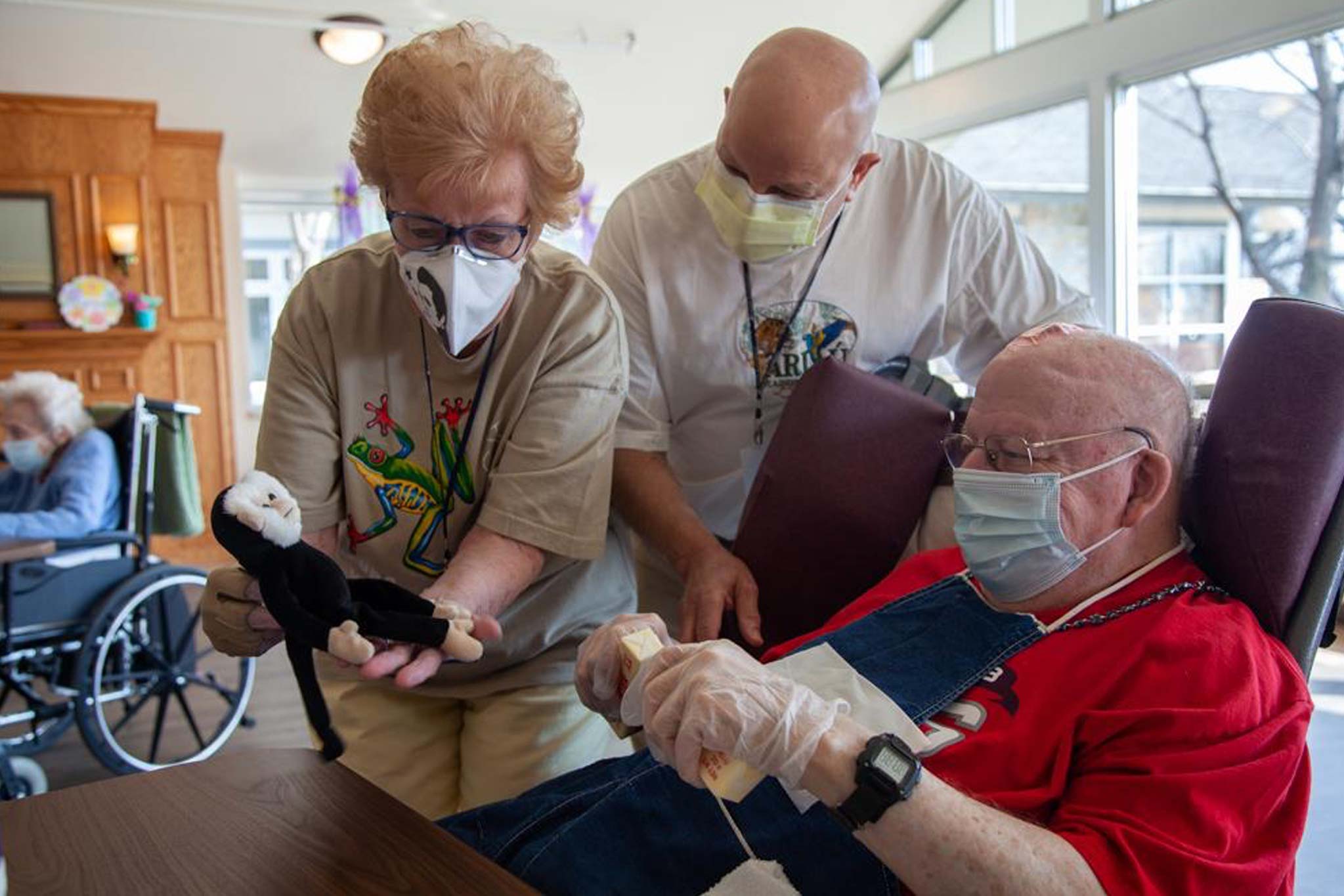We know that volunteers are of vital importance to the organizations that they serve and to the larger economy. In fact, in 2023 volunteers in the U.S. gave more than 4.1 billion hours of service. The impact: an estimated economic value of $122.9 billion. What many don’t realize is that the benefits a volunteer receives pack a power punch, too.
Offering a helping hand is associated with good physical health.
You have probably heard of a heart-healthy diet and heart-healthy exercise plan. Did you know that volunteering is also heart healthy? Researchers at Carnegie Mellon University found that adults over age 50 who volunteered regularly were less likely to develop high blood pressure than those who didn’t volunteer. (High blood pressure contributes to heart disease, stroke, and premature death.) Those who volunteer 200 hours per year or more decreased their risk of high blood pressure by as much as 40 percent.
This health boost could be linked to the physical nature of some volunteer activities like maintaining gardens at your church or community center or walking dogs at the Humane Society. Volunteering can also reduce stress which can cause inflammation.
Serving others can improve mental health.
In 1957, a random sample of over 10,000 Wisconsin high school graduates were interviewed for the first time in what became one of the country’s longest-running research efforts. Researchers with the Wisconsin Longitudinal Study went on to interview this cohort several more times over the years, focusing on questions about education, marriage, employment, and retirement. One of the findings confirmed what many of us had already guessed: those with a strong sense of purpose are less likely to feel lonely.
For some this purpose comes from volunteering. Roughly a quarter of adults over the age of 65 report volunteering. Upon retirement, many commit to volunteer roles. This may provide the purpose and structure they once found through employment or child-rearing.
In addition to staving off loneliness, maintaining purpose in one’s life often leads to higher self-esteem and a feeling of belonging. With that comes a decrease in depression and anxiety. A 2020 study in the United Kingdom demonstrated that with volunteering comes increased happiness over time. Those who volunteered monthly reported better mental health.

Volunteering helps prevent cognitive decline.
Americans engage in a wide range of volunteer activities. Those that are mentally stimulating — like tutoring or administrative tasks — likely help maintain memory and thinking skills. Increased social interaction through volunteering also helps stimulate the brain.
In 2020 researchers at UC-Davis studied the volunteer habits of nearly 2,500 older adults. They presented their findings at the 2023 Alzheimer’s Association International Conference. Among these findings, volunteer activity was associated with higher scores on tests of executive function and episodic memory. Individuals who volunteered several times per week demonstrated the highest level of executive function.

Whether it’s staving off cognitive decline, keeping the heart pumping at a healthy rate, or maintaining an uplifted mood, volunteering could contribute to a healthier you. If interested in learning about volunteer opportunities, we would be happy to connect with you. Contact Steve Watson, Executive Director – Luther Manor Foundation at [email protected] or 414-831-8950.

